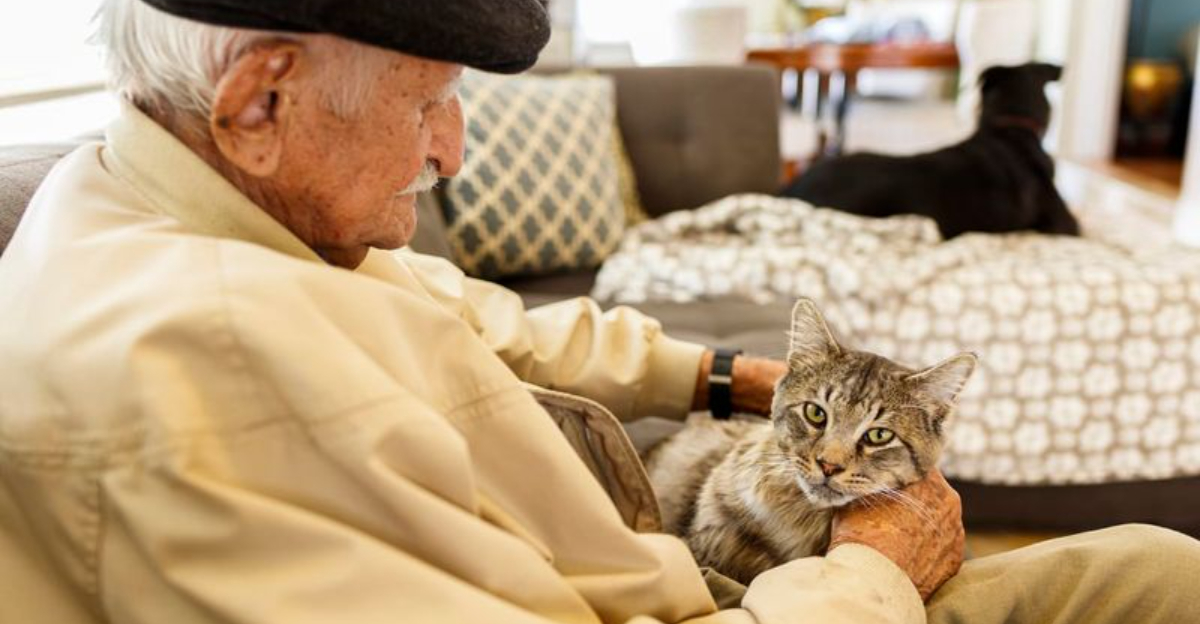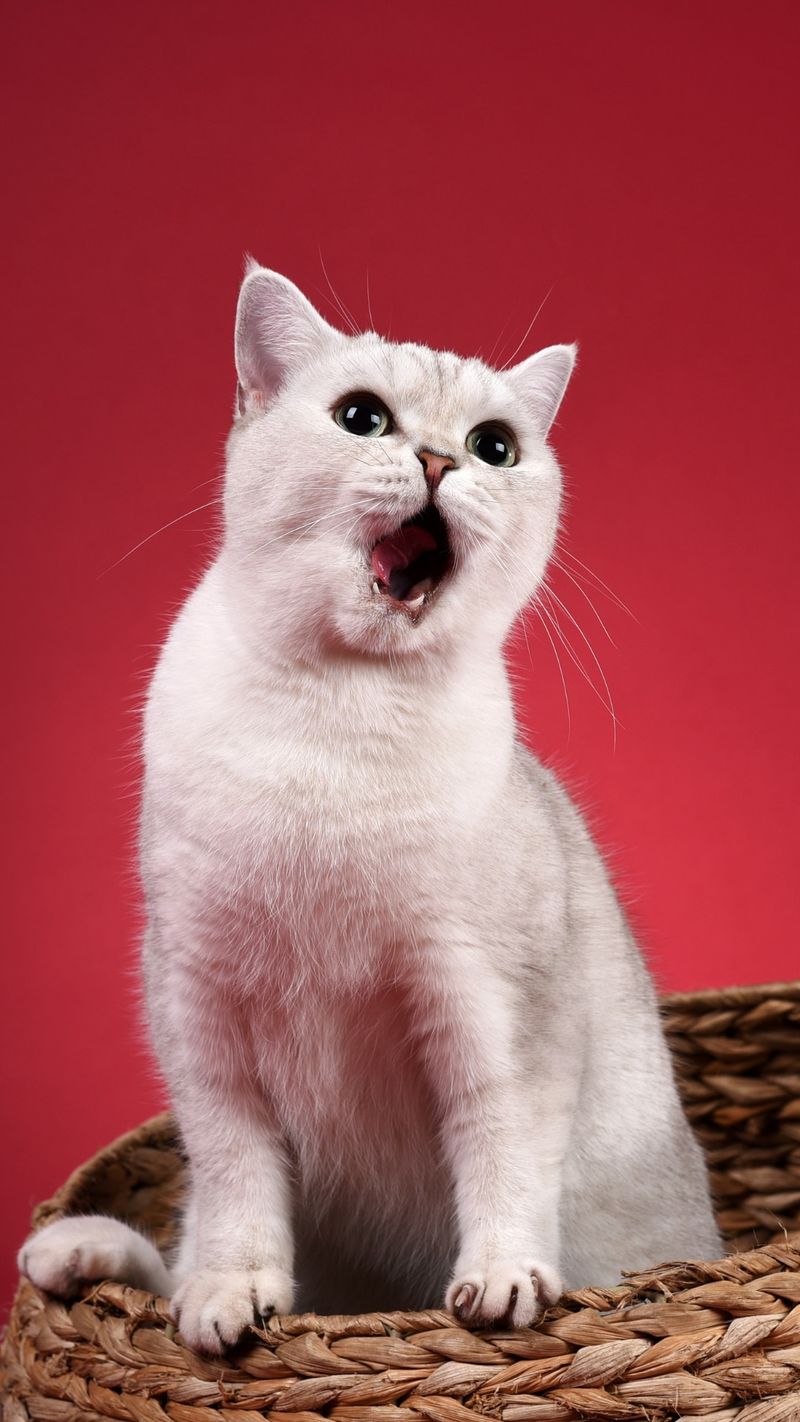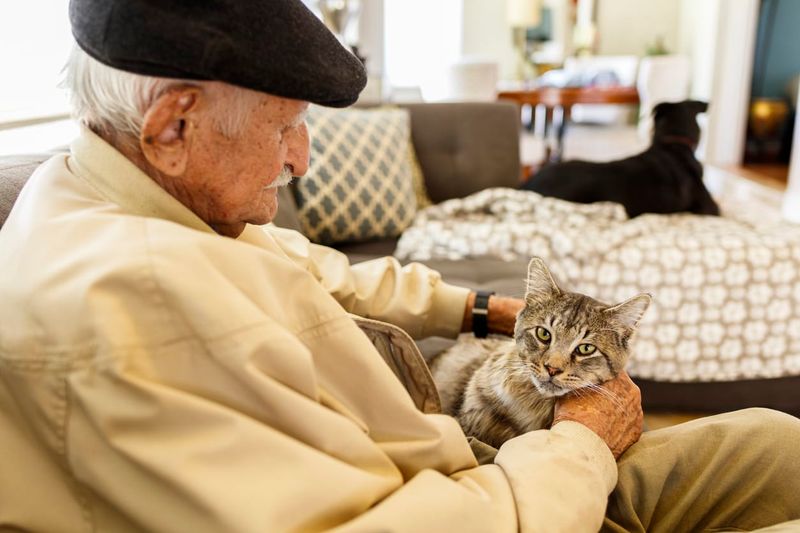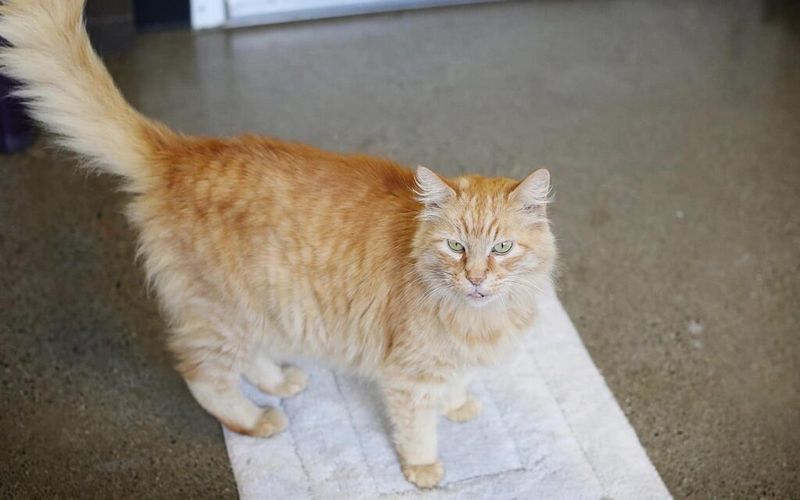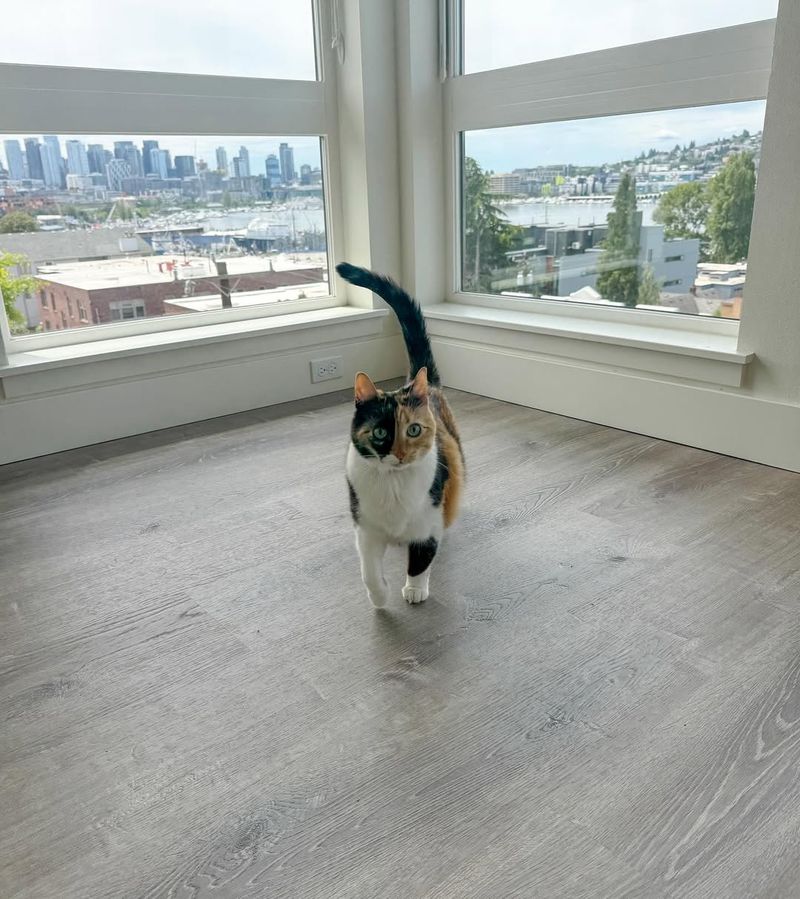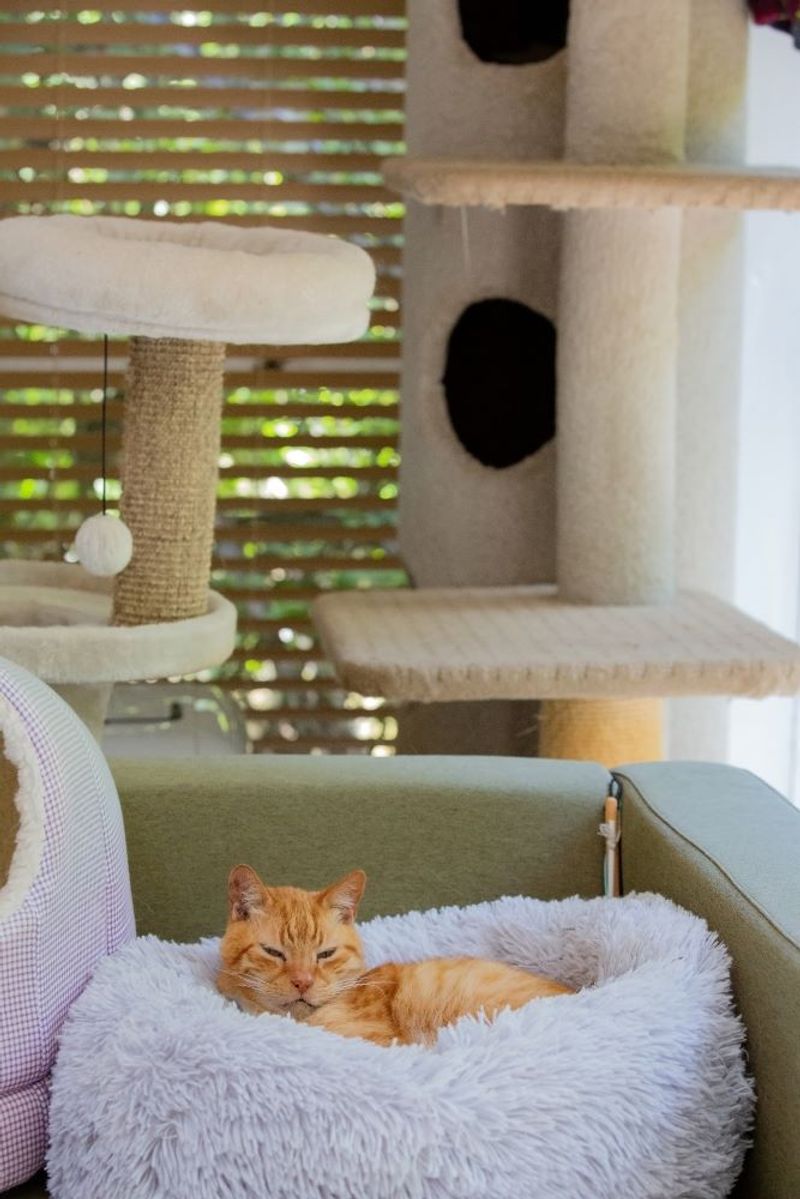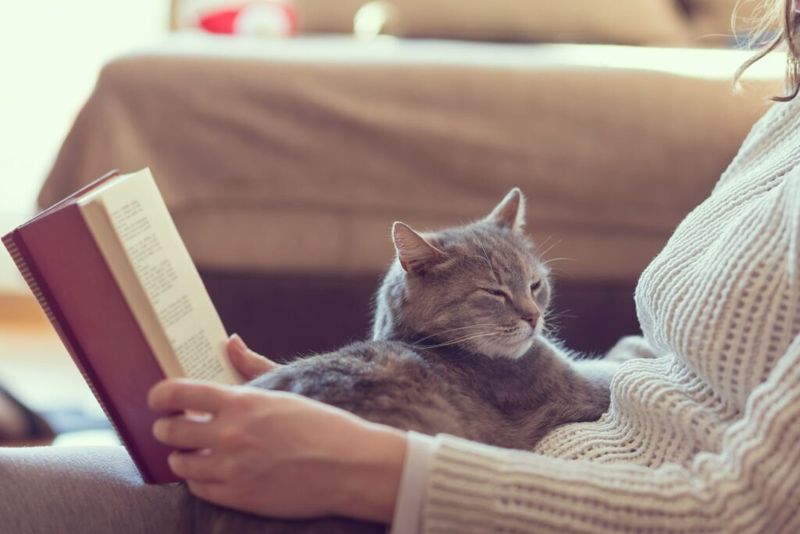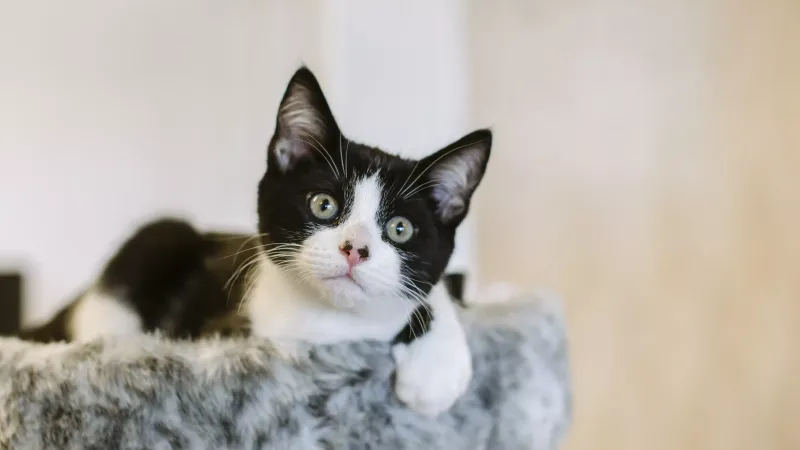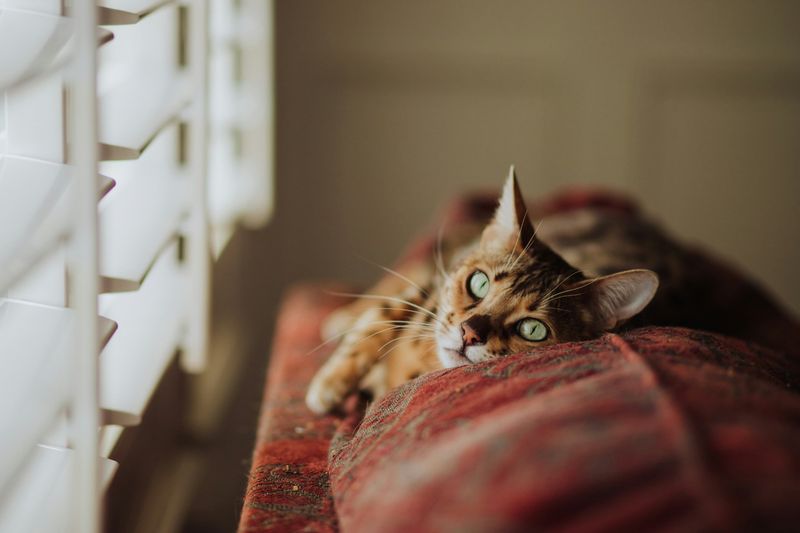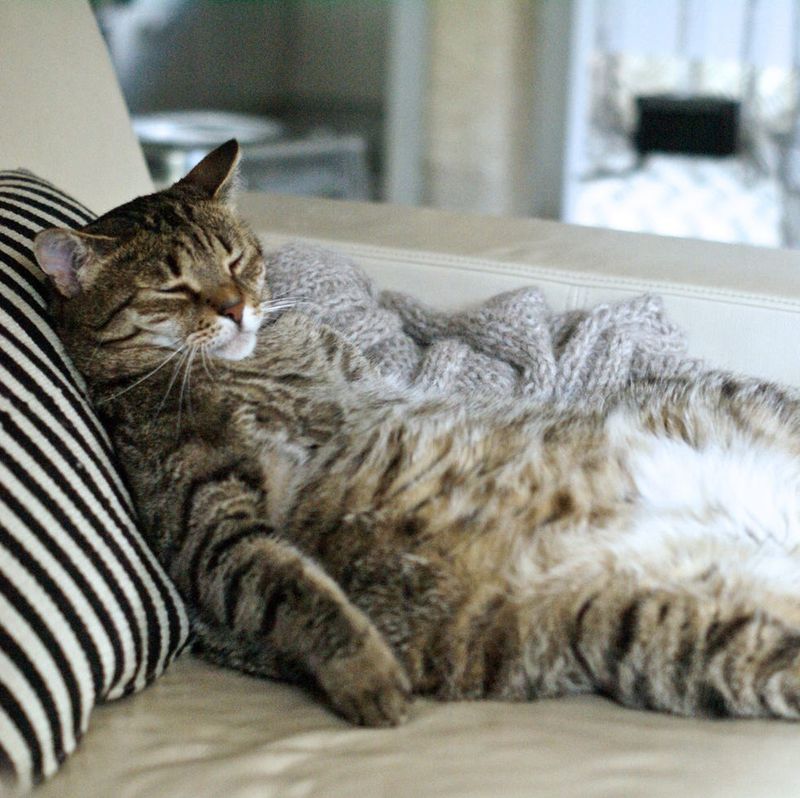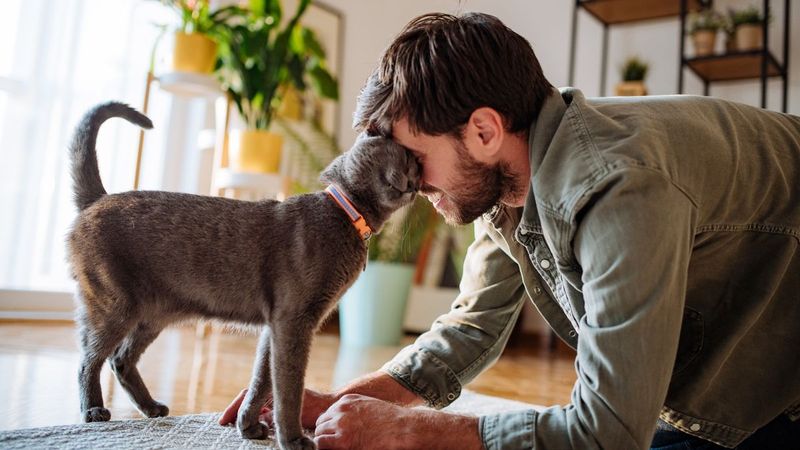📖 Table of Content:
- 1. Lower Maintenance Needs
- 2. Perfect for a Slower Lifestyle
- 3. No More Walks in the Rain
- 4. Apartment and City-Friendly
- 5. Less Mess, Less Stress
- 6. Quiet Companionship
- 7. Budget-Friendly
- 8. Emotional Intelligence, Just Different
- 9. They’re Independent but Loyal
- 10. A Fresh but Familiar Kind of Love
If you’ve spent years with a dog by your side, you know the joy of tail wags, loyal companionship, and boundless energy. Dogs are incredible pets—full of love, enthusiasm, and an eagerness to be part of every moment. But after a long chapter with a canine companion, it’s not uncommon to consider a different pace when you’re ready for another pet. Whether your dog has passed on or you’re simply looking for a change, the question becomes: what’s next?
Enter the cat—a creature of mystery, grace, and surprisingly deep emotional intelligence. While cats and dogs are often seen as polar opposites, cat ownership offers a fulfilling (yet refreshingly different) kind of companionship. They’re independent, low-maintenance, and emotionally rewarding in their own quiet way. For former dog owners, bringing a cat into your life can feel like discovering a whole new rhythm of pet love—one that gives more space but still warms the heart.
In this article, we’ll explore 10 reasons why cats make fantastic follow-up pets after dogs. From lifestyle compatibility to emotional connection, these points highlight how cats can seamlessly fill the furry void while introducing a new kind of joy. If you’re wondering whether a cat could be your next great pet, read on—you might be surprised just how well the fit works.
1. Lower Maintenance Needs
After owning a dog, you’re likely familiar with the daily demands of walks, training, and near-constant supervision. Cats, on the other hand, are significantly more low-maintenance. They don’t require walks outside, and they instinctively use a litter box with minimal instruction. Grooming is also something they largely handle themselves, needing only occasional brushing. This makes life easier, especially if your schedule has changed or you’re craving more downtime. Cats are content spending time alone and won’t act out if left for a few hours. They aren’t dependent on you for entertainment 24/7, and that self-sufficiency can be a breath of fresh air. If you’re looking for a pet that offers affection without the hustle, cats are a solid choice.
2. Perfect for a Slower Lifestyle
Over time, our lifestyles evolve—maybe you’ve slowed down, retired, or just want more peace at home. While dogs often demand physical engagement, cats provide companionship that aligns with a more relaxed pace. They love curling up next to you for naps, lounging in sunny spots, or simply observing the world from a window sill. There’s no guilt about skipping a walk or missing playtime. Cats don’t need to burn off excess energy outside the way dogs do. They match your energy, often enjoying calm environments where they can feel secure. For someone who’s lived the active dog-owner life, cats can be the perfect second chapter. You still get affection, just on gentler terms.
3. No More Walks in the Rain
If you’ve owned a dog, you’ve likely endured rainstorms, freezing winds, or blazing sun just to make sure your pup gets their outdoor time. Cats don’t require you to brave the elements—they do their business indoors, privately and cleanly. This simple difference adds up to a huge lifestyle perk. Litter boxes may not be glamorous, but they’re incredibly convenient. You’ll never have to carry waste bags or search for dog-friendly parks again. Cats eliminate the weather-related stress that often comes with dog ownership. It’s ideal for those who may have mobility limitations or just want to stay cozy during harsh seasons. With a cat, you can fully enjoy being indoors—no leash necessary.
4. Apartment and City-Friendly
Dogs often need more room to roam, which can be tricky in city apartments or smaller homes. Cats, however, are pros at making the most of any space. They love vertical environments—shelves, cat trees, windowsills—and require less square footage to thrive. You don’t need a backyard or nearby trails to keep a cat happy. Their quiet demeanor also makes them ideal neighbors in shared buildings. Barking can strain tenant relationships, but a soft meow is rarely disruptive. If you’ve moved from a house to an apartment post-dog life, a cat transitions beautifully into this new chapter. They bring warmth and playfulness without taking over your space—or your neighbors’.
5. Less Mess, Less Stress
Anyone who’s owned a dog knows the mess that can come with them: muddy paws, shedding, chewed-up furniture, and the occasional “accident.” Cats, in contrast, are naturally tidy creatures. They clean themselves daily, don’t require baths, and rarely have indoor accidents once trained. Their fur tends to be finer, and they don’t track in outside debris. Plus, they aren’t prone to chewing shoes or furniture. Their food and water areas stay neater, and litter box maintenance, while not glamorous, is predictable. The overall result? A cleaner home and fewer surprise cleanups—great for your peace of mind and your vacuum.
6. Quiet Companionship
Dogs can be vocal—they bark when excited, scared, or just bored. While this adds charm for some, it can become overwhelming over time. Cats tend to be much quieter, offering companionship with gentle purrs and soft meows. This makes them especially appealing for anyone seeking a more peaceful home environment. Whether you’re working remotely or simply enjoying a quiet evening, cats fit right in. Their silent presence can be incredibly soothing. Many owners find that the calm demeanor of a cat helps reduce stress and anxiety. If you’ve had your fill of noisy dog energy, a cat’s quiet love is a refreshing shift.
7. Budget-Friendly
Dogs can be expensive, especially larger breeds—food, grooming, vet bills, gear, and boarding can really add up. Cats generally cost less in every category. They eat less, rarely need professional grooming, and their gear is more affordable. Litter and toys are low-cost and long-lasting. Cats also tend to require fewer vet visits if they stay indoors, reducing medical expenses. Pet insurance for cats is usually cheaper too. If you’re in a stage of life where finances are a consideration, cats are easier on the wallet. They offer the joys of pet ownership without the heavier financial commitment.
8. Emotional Intelligence, Just Different
Many assume cats are emotionally distant, but that’s far from true. They simply express their affection more subtly than dogs. Cats will learn your routines, sense your moods, and often show up to comfort you during tough moments. They may not jump all over you when you get home, but they’ll sit nearby, blink slowly, or curl up in your lap to show love. After the high-energy emotions of a dog, this quieter connection can be deeply grounding. It encourages you to slow down, observe, and appreciate nonverbal cues. Cats build trust over time, which makes their affection feel earned and special. They might not wear their hearts on their sleeves—but they love just as hard.
9. They’re Independent but Loyal
One of the biggest shifts from dogs to cats is the level of independence cats bring. They’re perfectly happy entertaining themselves, sleeping, or exploring their space solo. This means you don’t have to feel guilty leaving the house or skipping a play session. However, independence doesn’t mean aloofness. Cats form real bonds with their humans, often following you room-to-room, sleeping beside you, or greeting you at the door. Their loyalty is quieter, but no less real. After years of managing a dog’s emotional needs, having a pet who gives you space while still offering love is a nice balance. You get devotion—just with a healthy dose of autonomy.
10. A Fresh but Familiar Kind of Love
Owning a cat after a dog is like learning a new language of love. It’s not louder or lesser—it’s just different. Cats may not be as outwardly expressive, but they form deep emotional attachments and long-term bonds. Their affection is shown in nuzzles, slow blinks, and quiet companionship. For someone grieving the loss of a beloved dog, a cat offers a gentler way to ease back into pet parenting. It’s still love, just on different terms—more peaceful, less dependent. Cats remind you that connection doesn’t always have to be intense to be meaningful. They bring new energy into your home while honoring the comfort and warmth you miss.
